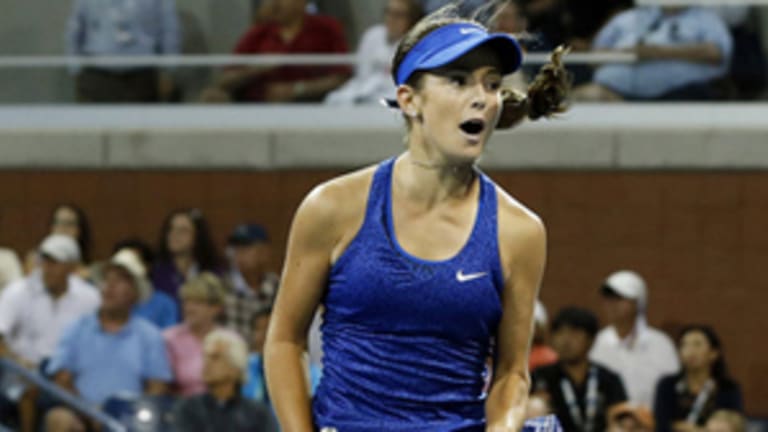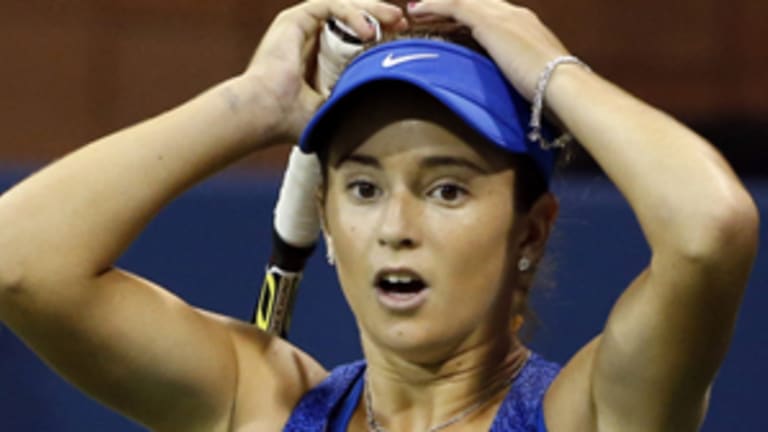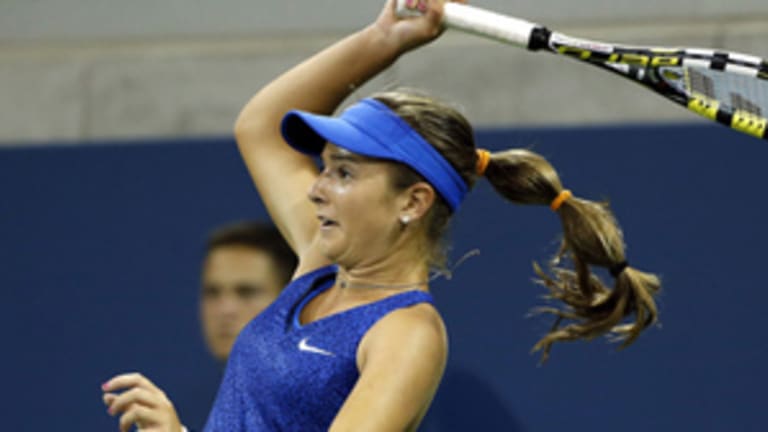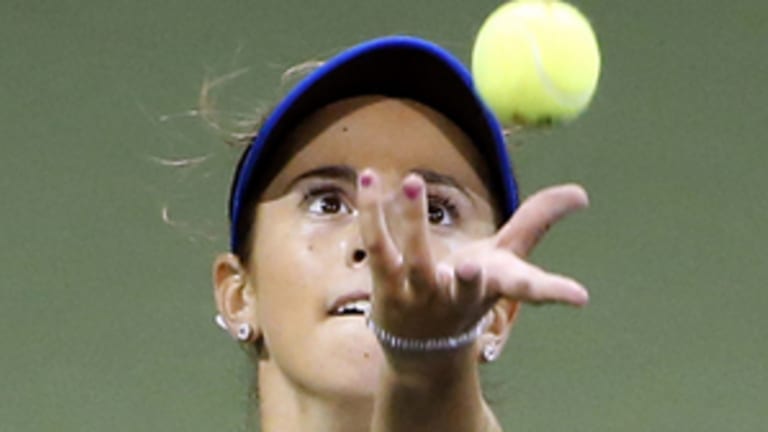In between her double indoor practice sessions, CiCi copped to feeling overwhelmed at her first tournament following the U.S. Open, a $75,000 ITF event in Albuquerque where she lost in the second round of qualifying to a Canadian ranked No. 296. "It wasn’t even that big of a crowd, like 50 or 100 people, but oh god, that was awful," she recalls. "They wanted to see me win. Just thinking about it…." She trailed off.
Like most things in a teenager’s life, especially one as resilient as CiCi, the mood didn’t last. CiCi says a heart-to-heart with U.S. Junior Fed Cup captain Kathy Rinaldi, coupled with some internal processing, allowed her to "swing freely" again. In October, she ripped through successive $25,000-purse ITF events in Rock Hill and Florence, SC, winning both and pushing her ranking inside the Top 300.
"It showed the U.S. Open wasn’t just a fluke," says the upbeat CiCi in a rare moment of defensiveness. "I hate when people say, 'Cibulkova played bad that day,' or something like that. No, I played really well that day." The teenager won her first title of 2015 at the $25,000 ITF in Rancho Sante Fe, CA, taking out Maria Sanchez, 6-0, 6-2 in the final.
For now, Bellis will remain based in Northern California, hit with local players, and occasionally train with USTA coaches at their national facilities. Aware of the physical rigors ahead, the family hired former WTA Tour trainer Nadine Waeghe, who worked with now-retired ex-Stanford standout Mallory Burdette, to oversee her off-court strength training and conditioning. While Lori serves as teacher, coach, scheduler and buffer, CiCi’s father, a financial investor who works for himself, will continue to do the bulk of the
tournament travel, which CiCi prefers. "No offense, Mom," CiCi says in Lori’s direction, "but he’s more chill."
But Lori is the linchpin. Besides being a constant companion, she serves as gatekeeper extraordinaire for all sorts of influences. "I’m not Type A, I’m Type AAA," says Lori. "We’re psycho-prepared people."
There is work ahead. At 5-foot-6 and 115 pounds, CiCi is not physically imposing (but perhaps still growing, says her mother). Her serve is attackable and she can be overpowered. Her gifts are footwork, court awareness, mental toughness, self-belief and a draw-blood-first style of play.
"If I was a grinder, some of the bigger girls would just kill me," says CiCi, whose forehand is her stronger wing. "Being aggressive, controlling the point, taking the ball early—those are my best qualities."
Her moxie was on full display when she rallied from a break down in the final set against Cibulkova at the U.S. Open. "She was fearless to finish the match out," says Tennis Channel commentator Austin. "She’s got a good head on her shoulders and she’s a super nice young woman," adds former Top-10 player Rinaldi, who says CiCi wrote her a hand-written thank you note after she led the USA to a junior Fed Cup victory in Mexico last fall.



